Broad Match vs Phrase Match A Consultant's Guide
- Chase McGowan

- Sep 22, 2025
- 14 min read
Your Quick Guide To Choosing Match Types
The debate around Broad Match vs. Phrase Match isn’t about picking a winner—it’s about matching your campaign to clear, measurable goals. Too often, over-priced, bloated agencies slide into “one-size-fits-all” setups that are easy for their junior account managers to handle but leave your ad spend bleeding. As an individual, expert consultant, my approach is to match the tool to the task so every dollar you invest works harder.
Picking the right match type shapes three critical factors: budget efficiency, audience reach, and lead quality. Treating this decision as a mere checkbox risks wasted clicks. Agencies frequently default to restrictive settings because they’re simpler to oversee across dozens of accounts—not because they drive the best returns for your specific business.
My focus is squarely on your unique business objectives. Do you want to uncover fresh audience segments and expand your footprint? Or is pinpoint accuracy—serving ads only to users with clear purchase intent—your top priority? Broad Match opens doors to new queries, feeding Google Ads signals it needs to unearth hidden conversion paths. Phrase Match, on the other hand, clamps down on irrelevant searches and keeps costs predictable. For a deeper dive, check out our guide on choosing the right keywords for high-impact ads.
“Whether you cast a wide net or zero in on a single fish depends entirely on what you’re fishing for.”
Match Type Decision Framework At A Glance
Below is a quick-reference table to help advertisers choose between Broad Match and Phrase Match based on primary campaign objectives and business context.
Campaign Goal | Recommended Match Type | A Consultant's Rationale |
|---|---|---|
Maximize Reach & Discovery | Broad Match | Ideal for exploring new search queries and feeding Google’s machine learning the data to find untapped customer pockets. This is where an expert hand is needed to guide the AI. |
Precise Targeting & Control | Phrase Match | Ensures your ads show only for highly relevant searches, protecting your budget and sharpening message delivery. A key tool for surgical precision, not a default setting. |
Limited Budget & Niche Services | Phrase Match | When every click must matter, Phrase Match delivers the control needed to reach a qualified audience without overspend. An expert knows how to maximize a tight budget. |
Use this framework as your starting point. Let your campaign goal drive the choice between Broad Match’s expansive scope and Phrase Match’s surgical precision.
Understanding How Each Match Type Actually Works
Forget the dry, textbook definitions most agencies parrot. To really get the difference between broad match vs. phrase match, you have to think like a strategist, not just a technician. This is where a seasoned consultant's approach completely diverges from an agency's rigid, one-size-fits-all playbook. My specialization is your advantage.
Think of broad match as your campaign's R&D department or its "Market Intelligence Tool." When you pair it with Smart Bidding, its real job is to explore the entire universe of user searches. It’s built to uncover those hidden pockets of high-intent customers you’d never think to target yourself. Most agencies are terrified of it because it demands active, expert management and a deep trust in Google’s AI—something they can't offer without individual specialization.
In contrast, phrase match is your "Precision Targeting Tool." It gives you a critical layer of control, making it perfect for honing in on specific user intent while still accounting for natural language variations. It’s the safe, predictable option agencies lean on because it minimizes risk and requires less strategic nuance, even if that means leaving massive growth opportunities on the table.
Real-World Search Query Examples
The subtle, yet crucial, differences in the traffic each match type attracts are where campaigns are won or lost. Let's break it down with a simple example keyword: "women's running shoes".
Broad Match in Action:A campaign leveraging this keyword on broad match could show ads for searches like:
lightweight sneakers for female joggers
best athletic footwear for marathon training women
trail shoes for her
See what's happening? Broad match is capturing the intent behind the keyword, even when the exact words are missing. This is how you discover what your customers are actually searching for, not just what you think they're searching for.
An expert consultant uses broad match to feed Google’s algorithm invaluable conversion data, actively teaching it to find more customers just like your best ones. A bloated agency just sees it as "uncontrolled spend" because they lack the specialized oversight to manage it effectively.
Phrase Match in Action:For that same keyword, a phrase match campaign () is far more restrictive.
It WOULD show for: buy women's running shoes online, best women's running shoes for sale, or local store with women's running shoes.
It WOULD NOT show for: running shoes for women or shoes for women running.
Phrase match requires the core phrase to stay intact, giving you tight control over the search's context. That precision is valuable, absolutely. But relying on it exclusively is like fishing in only one small corner of a massive, fully-stocked lake.
If you want to go even deeper into the mechanics, you can check out this comprehensive tutorial on Google Ads keyword match types.
Analyzing the True Cost of Your Keywords
This is where you see the stark difference between a profit-driven consultant and an over-priced, bloated agency. Agencies love to parade low Cost-Per-Click (CPC) numbers because it’s a simple, feel-good metric that looks great on a report and is easy for their junior staff to explain.
But a low CPC is just a vanity metric if it doesn’t bring in profitable customers. As your dedicated consultant, my focus is, and always will be, on your Cost-Per-Acquisition (CPA) and overall profitability. That's the only metric that truly matters to your bottom line.
The real financial hit from your match type choice goes way beyond that initial click cost. While broad match has a (sometimes deserved) reputation for pulling in some junk clicks, it often comes with a much lower CPC. Why? Because it taps into a wider, less competitive auction pool. When an expert pairs that with smart, AI-driven bidding, you can often land a surprisingly competitive—and profitable—CPA.
On the flip side, the so-called "safety" of phrase match can be a costly illusion. By sticking to it, you're usually going head-to-head with every other advertiser—including those managed by agencies using the same lazy templates—fighting for the most obvious, high-traffic terms. That intense competition is what inflates your CPCs and, ultimately, your acquisition costs.
The Shifting Price of Precision
This isn't just a theory; it's a clear market trend. A recent analysis of over 7,000 advertiser accounts showed that between 2023 and 2025, broad match CPCs rose by 29%. Not great, but manageable.
During that exact same period, phrase match CPCs shot up by a staggering 43%. This trend proves that advertisers who are still clinging to the perceived safety of phrase match are increasingly overpaying for the exact same clicks.
A low CPC is worthless if it doesn't convert. A high CPC can be a bargain if it delivers a profitable customer. This is the core principle separating a profit-focused consultant from a report-focused agency that bills you based on spend, not results.
An agency sees the rising cost of phrase match and their first instinct is to ask for a bigger budget. I see an opportunity to pivot. We can strategically use broad match to sidestep the bidding wars, feed Google’s AI the conversion data it needs to learn, and uncover more cost-effective paths to your ideal customer. If you want to dive deeper, you can learn more about what Cost-Per-Click is and how it truly impacts your ad spending.
This isn’t about giving up control. It’s about being smarter with your budget. It takes a nuanced understanding of how to balance the reach of broad match with a rock-solid negative keyword strategy—a hands-on, expert-led process that large, impersonal agencies just can't replicate at scale.
They play it safe. I play to win.
Connecting Match Types to Revenue and ROAS
Here's a hard truth: the only metric that really moves the needle is profitability. While big agencies get bogged down in vanity metrics like clicks and costs to justify their high retainers, an experienced consultant connects every single decision—especially the broad match vs. phrase match debate—directly to your bottom line. The game isn't about spending a budget; it's about generating a real, measurable return.
This is where my philosophy diverges from the old-school agency playbook. Many still preach that tighter keyword control automatically means higher returns. They cling to phrase match because it feels safe, predictable, and frankly, requires less strategic heavy lifting from their overworked account managers.
But “predictable” often just means you're leaving money on the table. That safety net comes at the cost of missed opportunities and inflated ad costs, which is a direct hit to your Return on Ad Spend (ROAS).
Uncovering Hidden Profit with Broad Match
When you pair broad match with value-based bidding, it stops being a liability and becomes your most powerful discovery tool. It’s how you uncover high-value conversion paths that a restrictive phrase match strategy would have screened out entirely. This combination lets Google's AI find users with serious commercial intent who happen to use weird, unexpected, or long-tail search queries you’d never think to target.
These are often your best customers. Their specific, nuanced search was met perfectly, leading to larger purchases or longer-term client relationships. An agency analyst, looking at a spreadsheet, might flag an unconventional search term as "irrelevant," but a seasoned consultant with deep knowledge of your business sees a potential goldmine. That’s the expert edge: using automation to maximize profit, not just manage spend.
This strategic pivot from cost management to profit generation is what separates a dedicated consultant from a large, process-driven agency. We're not just running ads; we're building a revenue engine for your business.
And this isn't just a hunch; the data backs it up. One study that dug into 16,825 search campaigns found that broad match keywords often deliver higher revenue per conversion. Yes, even if their cost per acquisition is sometimes a bit higher.
Specifically, when layered with automated bidding strategies like Max Conversion Value, broad match pulled in superior revenue per conversion. This was especially true for e-commerce businesses tracking higher cart values. You can read more about these broad match revenue findings and see the data for yourself.
At the end of the day, what matters is knowing how to connect these technical keyword decisions to actual financial outcomes. If you want to get a firmer grip on your campaign's true profitability, check out my guide on how to calculate Return on Ad Spend for real profit.
When to Strategically Deploy Phrase Match
A smart PPC strategy isn't just about finding what works; it's about knowing when to tighten the reins. While broad match casts a wide net for discovery, phrase match is your scalpel for control and precision.
I've seen countless large agencies, often running on autopilot with templated account structures, overuse phrase match as a blunt instrument. As a consultant, I treat it differently. It's a surgical tool I pull out for specific, high-stakes scenarios where every click has to count. My individual specialization means I have the time and expertise to make these nuanced decisions.
It’s not just another option on the list—it's an essential lever for protecting your budget, your brand, and the integrity of your performance data.
Guarding Your Brand and Budget
When you absolutely cannot afford a bad click, phrase match is your first line of defense. This isn't an exaggeration; it's a financial necessity in a few common situations:
Protecting Brand Messaging: If your brand name is even remotely similar to something irrelevant—or worse, negative—phrase match is a non-negotiable shield. It stops your ads from showing up next to embarrassing or brand-damaging searches.
Targeting Niche B2B Services: For specialized industries built on technical jargon, phrase match is your filter. It ensures you only attract prospects who know what they're looking for, cutting out the noise from unqualified, generalist traffic.
Operating on a Limited Budget: When every dollar is on the line, you don't have the luxury of paying for exploratory clicks. Phrase match forces your budget to focus squarely on users with clear, undeniable intent.
In these cases, the goal isn't just conversions. It's about getting the right conversions without bleeding your budget dry. An agency might complain this limits reach, but a seasoned consultant knows it’s about maximizing profitability through deliberate, focused action.
An expert consultant understands that true campaign control isn't about restricting growth; it's about channeling ad spend toward the most profitable actions with surgical precision. Agencies often lack this finesse.
Using Phrase Match for Intelligence Gathering
Beyond its defensive power, phrase match is an incredible tool for collecting clean, actionable data. The search query reports from a well-managed phrase match campaign are pure gold.
They give you a crystal-clear window into how your ideal customers are actually searching. You'll spot patterns to sharpen ad copy, improve landing pages, and even discover new, high-value exact match keywords to target.
The insights here are far more focused than the messy, sprawling data you get from broad match. For example, a key advantage of phrase match is its ability to reveal how word order impacts performance. You might find that the keyword 'California hotels' delivers a solid CPA of $12.50, but the reverse, 'hotel California', brings in clicks at a staggering $50 CPA. Spotting this allows you to adjust bids immediately, slash your costs, and boost conversions. You can discover more insights about keyword performance on searchenginepeople.com to dig deeper into this.
This is the kind of strategic thinking a specialist brings to the table. We don’t just set it and forget it. We use every tool in the box to gather intelligence that makes your entire marketing operation smarter.
Deciding between these two powerful match types isn't about which one is "better" in a vacuum. It's about aligning your choice with your immediate business goals and your tolerance for risk. This table breaks down the strategic thinking behind when to deploy each one.
Strategic Scenarios for Broad vs Phrase Match
Business Scenario | The Smarter Choice | Consultant's Strategic Reasoning |
|---|---|---|
New account launch or market expansion | Broad Match | The goal is maximum data acquisition and keyword discovery. You need to learn the landscape quickly, and broad match provides the fastest path to identifying profitable search patterns you might not have anticipated. |
Limited budget with strict CPA/ROAS targets | Phrase Match | Budget protection is paramount. You can't afford wasted spend on irrelevant queries. Phrase match locks down your targeting to ensure every click has a high probability of converting, maximizing efficiency. |
Protecting a brand name from negative or irrelevant associations | Phrase Match | Brand safety is non-negotiable. Phrase match acts as a guardrail, preventing your ads from appearing for searches that could damage your reputation. Control is more important than reach here. |
Scaling a mature, proven campaign to find new growth | Broad Match | You've already maximized your core keywords and need new pockets of demand. Paired with Smart Bidding, broad match can uncover new, profitable audience segments and search behaviors to fuel the next stage of growth. |
Targeting a niche B2B audience with specific technical jargon | Phrase Match | Precision is everything. You need to speak the language of your audience and filter out anyone who doesn't. Phrase match ensures your ad spend is reserved exclusively for highly qualified, industry-aware searchers. |
The key takeaway? Your match type strategy should be fluid. What works for a new product launch is completely different from what's needed for a stable, high-efficiency brand campaign. The best advertisers know how to toggle between these tools based on the job at hand.
My Framework for Choosing Your Match Types
Forget the generic agency templates. I don’t use them. My approach is a decision-making framework built from years of hands-on client work, not a checklist passed down to a junior employee. It’s designed to get to the right answer for your specific situation.
This framework boils down to four key pillars. By asking the right questions around each, we can quickly figure out the ideal mix of match types for your campaigns.
Budget Size: How much cash do you have to explore new queries versus needing to lock down costs?
Campaign Objective: Are we chasing high-volume leads or precise e-commerce sales? The goal dictates the targeting.
Tracking Maturity: How clean is your conversion data? This determines whether you can actually trust automated bidding to do its job.
Experimentation Tolerance: How comfortable are you with testing new things, specifically the wider net of broad match?
The Diagnostic Questions I Ask Every Client
First off, what’s your monthly search budget, and how much wiggle room do you have?
Next, what’s the primary goal here? Are you trying to fill a sales pipeline with leads, or are you driving direct online sales with clear ROAS targets?
Then, I need to know about your tracking. Can you confidently track conversions from the first click to the final sale, even if it happens offline?
And finally, what's your real appetite for risk? How much of your budget can you afford to put toward experimenting with broad match before you get nervous?
Answering these questions ensures we don’t just throw your money at a one-size-fits-all agency strategy that someone else cooked up.
“A tailored inquiry process uncovers insights that no agency checklist can deliver.” – Chase McGowan, Marketing Consultant
Putting the Framework into Action
Once you have clear answers, choosing your match types becomes a much more confident decision. As you get comfortable with this process, you can start layering in AI tools to get even more out of your campaigns. If you're running lead gen, it's worth exploring how to combine these strategies with AI for Lead Generation That Drives Real Growth.
Here’s how the pillars translate into direct action:
Pillar | Key Question | My Recommended Action |
|---|---|---|
Budget Size | Do I have room to explore? | If yes, lean into broad match for discovery. |
Campaign Objective | Is my goal lead gen or e-commerce? | For precision, start with the control of phrase match. |
Tracking Maturity | Are my conversion signals robust enough? | If they are, you can test broad match with smart bidding. |
Experimentation | How much risk can I tolerate? | Start safe with phrase match, then expand to broad later. |
Remember to review performance at least monthly. This is where you’ll refine bids, add negatives, and cut out the waste.
Your Next Steps
Take a few minutes and run a quick audit of your own campaigns using these diagnostic points. It will immediately show you where your current match type strategy aligns—or doesn't—with your goals.
This is the exact process I use to ensure my clients maintain precise control while still finding strategic ways to expand. If you want a personalized analysis that grows with your business, let's talk.
Contact me today, and we can start with a complimentary diagnostic session to get your keyword match types aligned with real ROI goals.
Common Questions About Broad vs. Phrase Match
When you're in the trenches managing PPC accounts, the nuances between broad match vs. phrase match aren't just academic—they have real-world consequences for your budget. Forget the bloated agency hand-waving; here are the straight answers I give my clients.
Can You Use Broad and Phrase Match in the Same Ad Group?
Technically, yes. Strategically, absolutely not. It's one of the first red flags I look for when auditing an account; it tells me either a rookie is at the helm or a junior employee at a big agency is completely swamped and using a lazy, templated approach.
When you dump both match types for the same keyword into one ad group, you’re handing Google the keys and walking away. You can’t control which one gets triggered. That means you can't set different bids, you can't write tailored ad copy, and your performance data becomes a messy, unreliable blur. It completely neuters any attempt at a sophisticated bidding strategy.
How Do Negative Keywords Work With Each?
Negative keywords are your most powerful lever for cutting waste, and they behave very differently depending on the match type.
With Broad Match: A negative keyword like acts as a blunt instrument. It blocks your ad from showing on any search that includes the word "free," such as free running shoes for women.
With Phrase Match: A negative phrase keyword like is more of a precision tool. It only blocks searches where that exact phrase appears in that specific order, like women's running shoes for kids.
Getting this right is fundamental to sculpting your traffic and not just hacking away at it.
An experienced consultant uses negative keywords like a scalpel, carefully carving away irrelevant spend. A big agency often uses them like a sledgehammer, accidentally blocking profitable search terms because they simply don't have the time or specialized knowledge to dig into the details.
Is Phrase Match Obsolete?
Not at all, but its job has changed. In today's world of powerful AI and automated bidding, broad match is the engine you use for growth and discovering new pockets of demand. Think of it as your primary tool for expansion.
Phrase match, however, is now your go-to for control and defense. It's essential for protecting your brand terms, targeting hyper-specific industry jargon, or locking down performance when you have a razor-thin budget. It’s less of a primary driver and more of a specialized tool for when you need absolute precision. A true expert knows when to use each tool, rather than relying on one as a crutch.
Ready to build a keyword strategy that actually drives profit instead of just clicks? At Come Together Media LLC, I don't do generic agency advice. I build custom PPC frameworks that work because I'm a dedicated specialist, not a massive, faceless firm.
Let's schedule your free, no-commitment consultation and see what an expert-led approach can do for your bottom line.






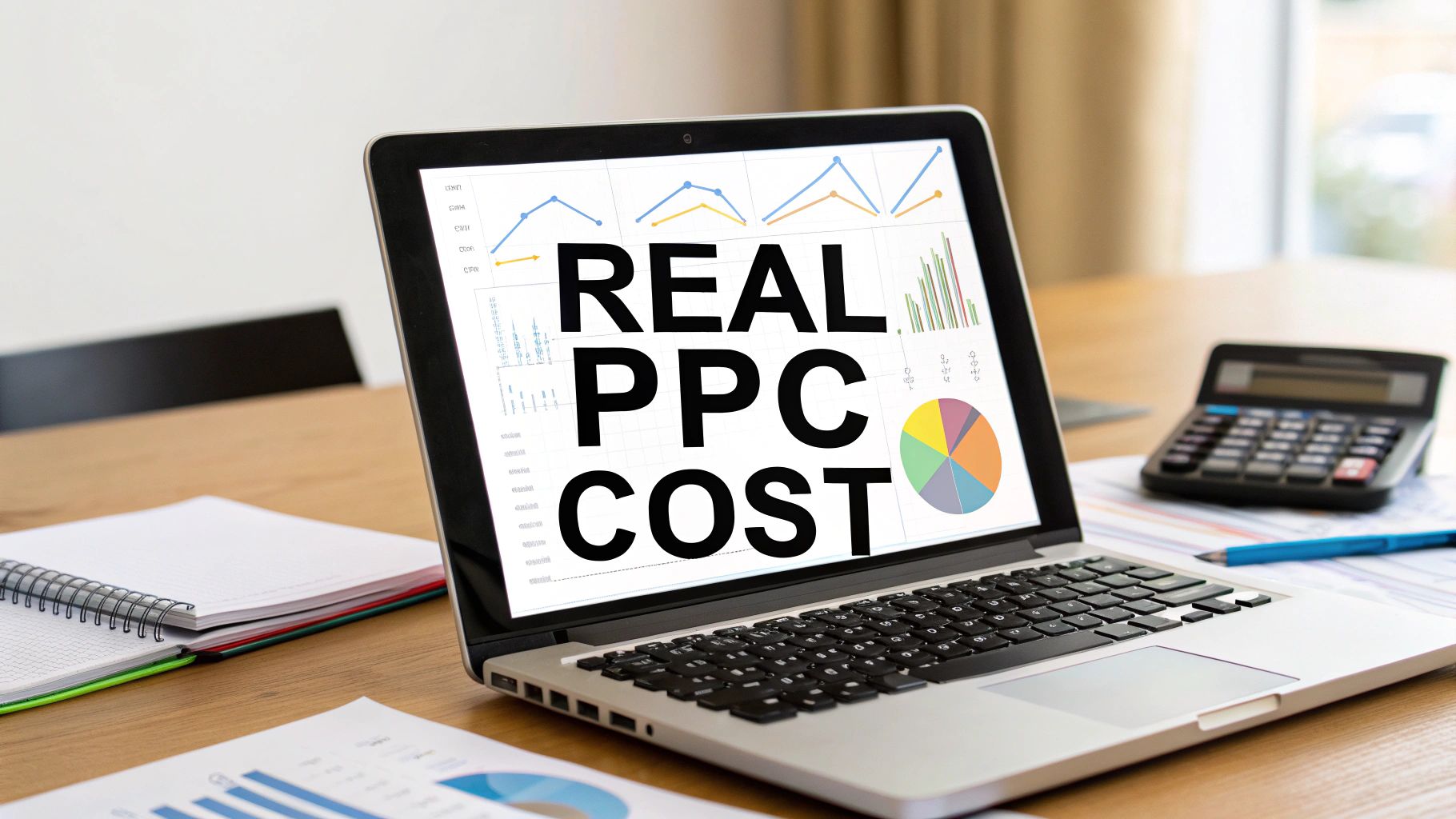
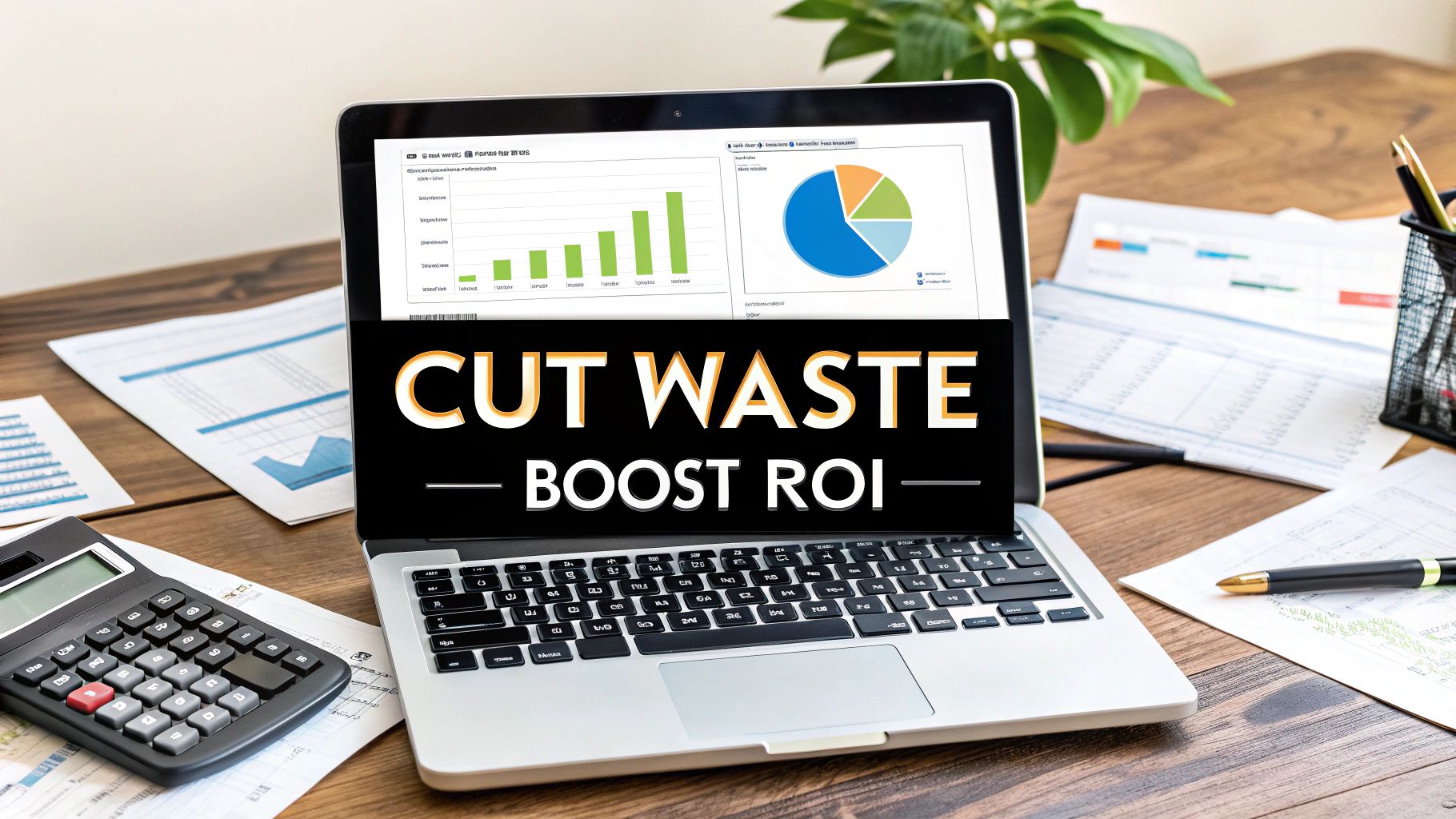
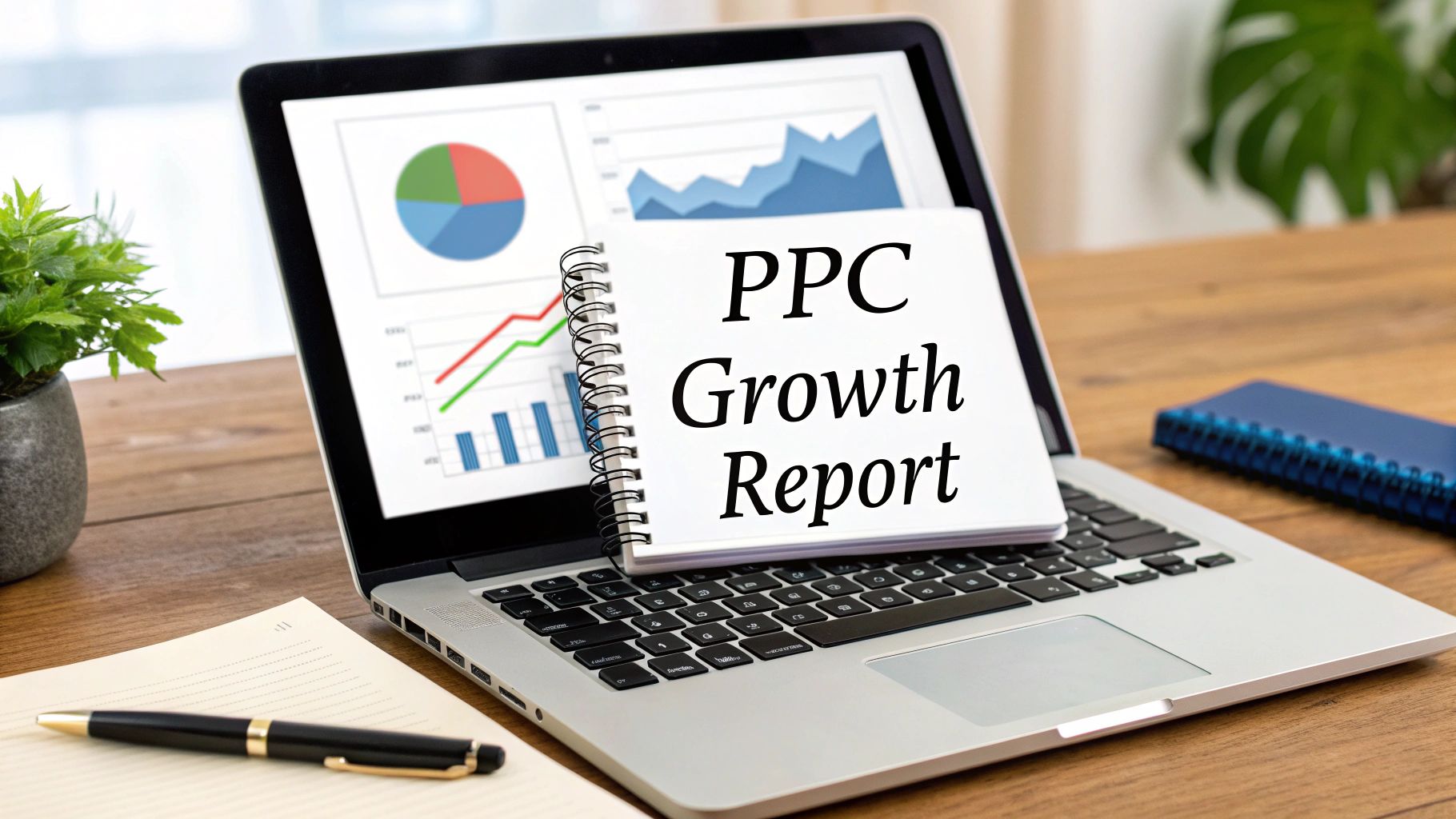
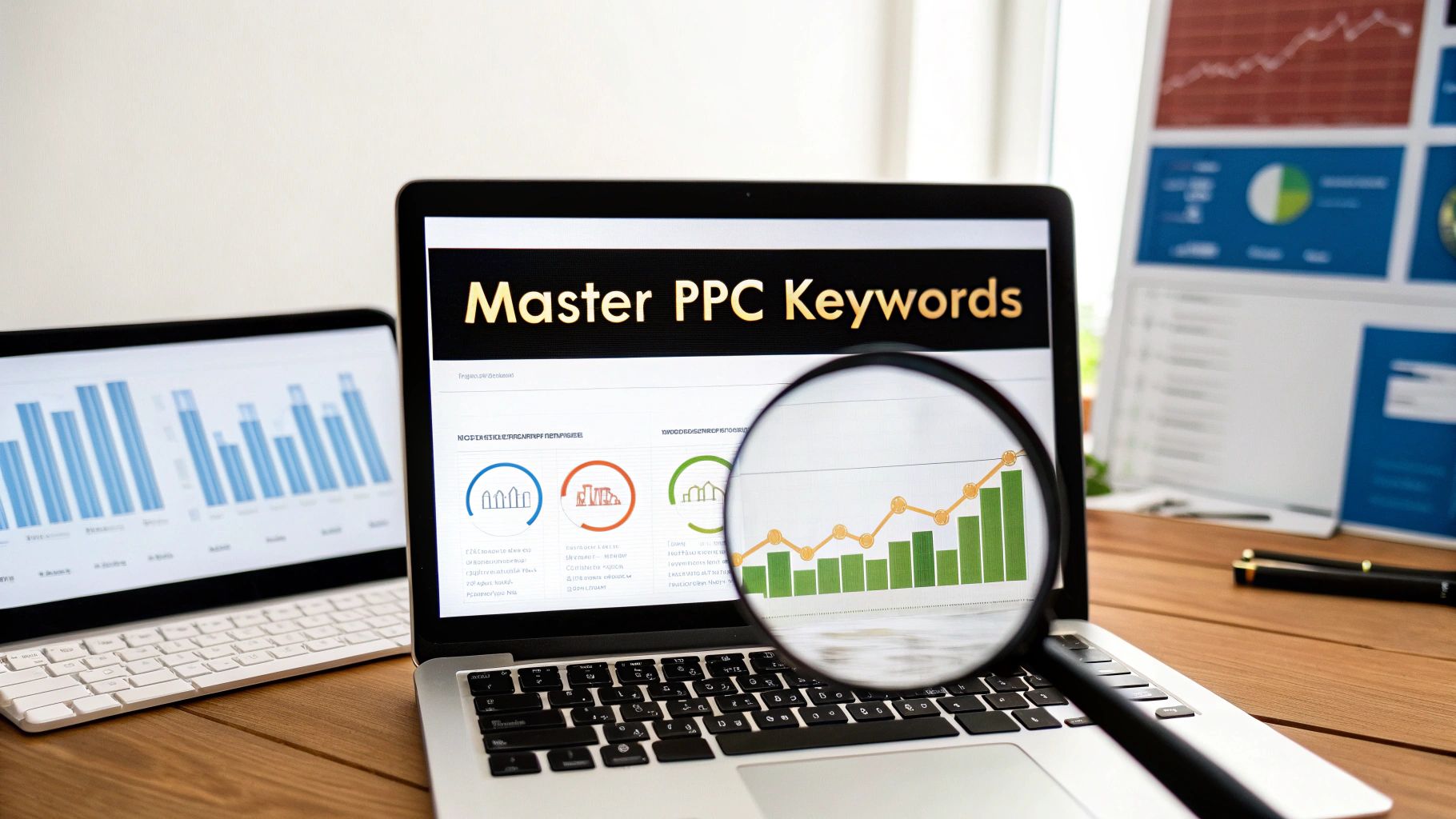
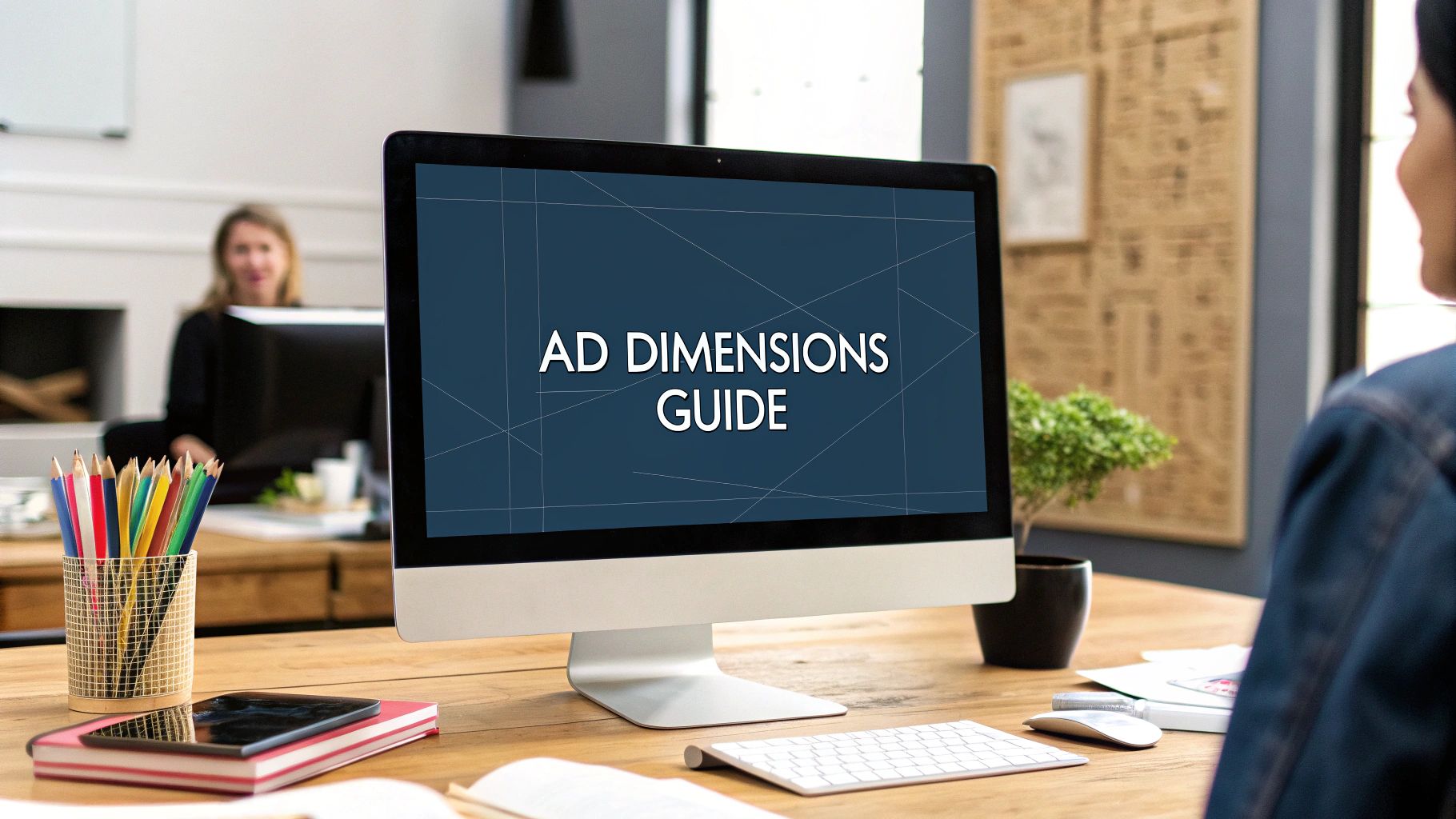
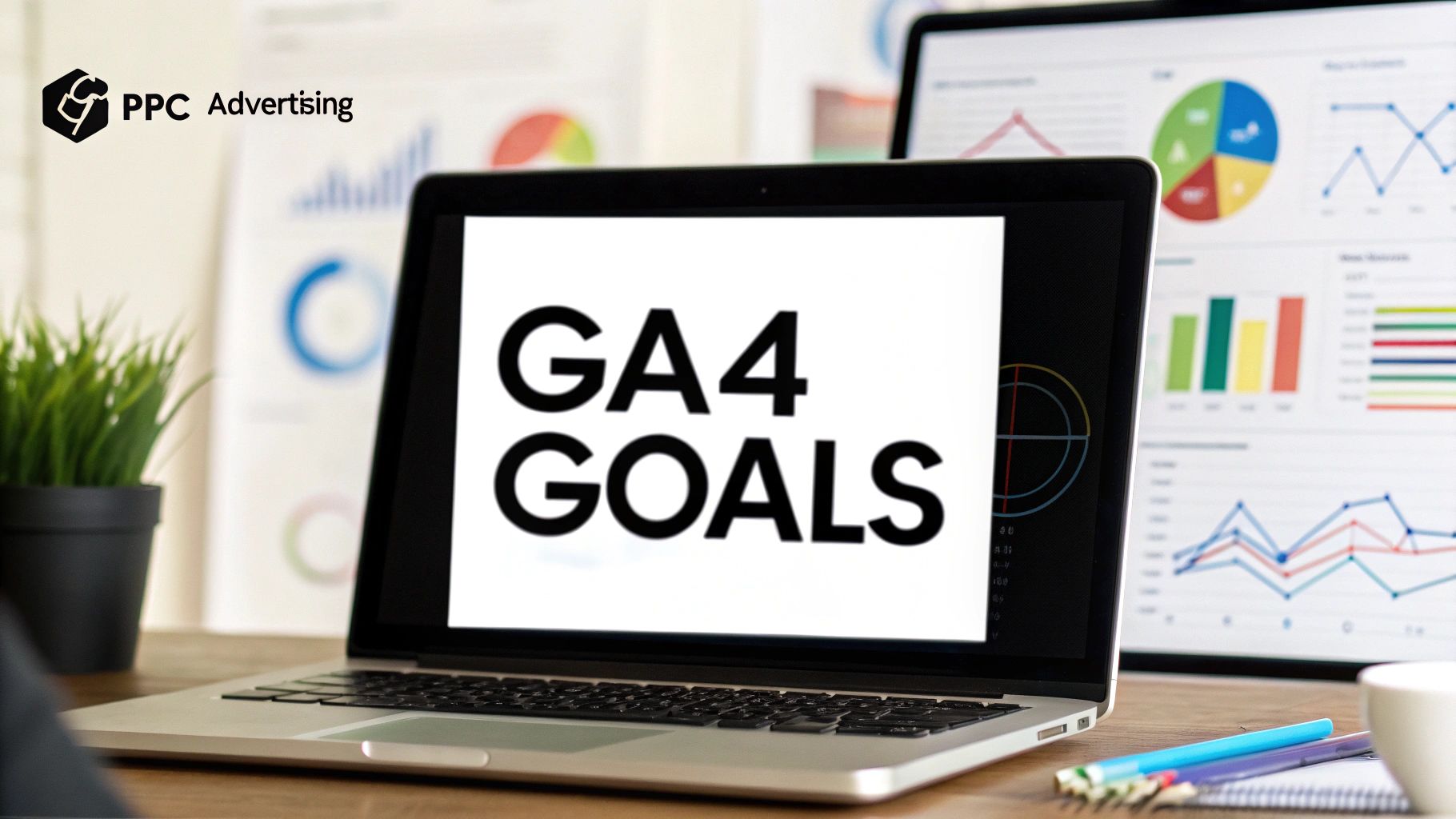


Comments